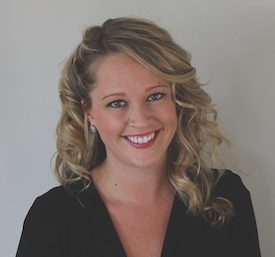The Bankruptcy Court of the Southern District New York denied Ditech’s motion Friday to dismiss the formation of a consumer committee to protect the interests of mortgage borrowers who have loans with Ditech or its subsidiaries.
The creation of the committee was first approved last month by the U.S. Trustee, a division of the Department of Justice, after a number of advocacy groups filed petitions claiming that many Ditech borrowers, including those who have reverse mortgages with its subsidiary Reverse Mortgage Solutions, were unlikely to be fairly represented in the bankruptcy proceedings.
The representative of some of the borrowers, J. Samuel Tenenbaum of Northwestern’s Complex Civil Litigation and Investor Protection Center, said such a committee was necessary to protect the rights of reverse mortgages borrowers, who are mostly elderly, disabled or financially unstable, and therefore vulnerable.
“There’s a lot of people who could be negatively affected,” Tenenbaum told HousingWire. “We just want to make sure that the bankruptcy does not do anything that negatively impacts consumer rights.”
The Trustee approved of the creation of a five-member consumer committee, but not long after the request was granted, Ditech filed a motion objecting to such a committee, asking that it be disbanded.
Ditech claimed that the Trustee’s move was “arbitrary and capricious” and would have a chilling effect on Ditech’s attempts to sell off portions of its business.
If the court will not disband the committee, Ditech asked that the committee’s scope be limited and its fees and expenses capped at $250,000.
No such luck, the New York Court ruled.
In a motion refuting Ditech’s objection, the committee’s legal counsel – Victor Noskov, Ben Finestone and Susheel Kirpalani at the law firm of Quinn Emanuel Urquhart & Sullivan – reasserted the need for such a committee.
“As noted in many of the requests to appoint a consumer committee, consumer borrowers include some of the most vulnerable creditors – including reverse mortgage borrowers who are ‘exclusively elderly, generally have low income, lack access to counsel, and have higher rates of communicative, cognitive, and other disabilities that make it difficult for them to advocate for themselves,’” the attorneys stated. “A statutory committee is the only way these individuals will be represented here.”
The attorneys also note that as the bankruptcy nears the critical stage in which the court rules on Ditech’s proposed plan, it is all the more important that the views of borrowers be heard.
“Nothing in the Bankruptcy Code permits the Debtors or the First Lien Lenders to silence the voice of consumers that both Congress and the U.S. Trustee sought to protect,” they wrote.
The court apparently saw the validity of this argument, ruling to keep the consumer committee in play as the bankruptcy proceedings continue.
“The Consumer Creditors’ Committee is pleased with the decision and thankful to the court for its comprehensive and well-reasoned analysis, especially given the importance of these issues to the consumer borrowers affected by Ditech’s bankruptcy,” the committee said in response to the ruling.






